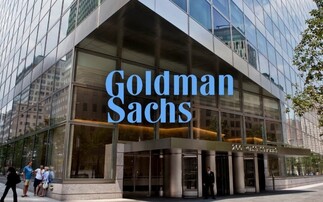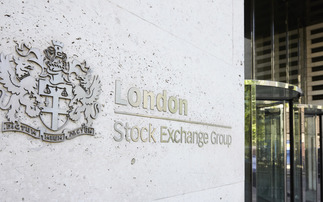INDUSTRY VOICE: Leverage can be an investor's best friend or worst nightmare. Though companies may borrow to expand, indebted companies can suffer when markets are under pressure. Lyxor ETF looks at company leverage, balance sheet strength and why it matters for income investors.
Find out more about quality income strategies
What rising bond yields mean
When interest rates and bond yields rise, and markets and economic direction take a turn for the worse, it tends to be the weakest elements in the economy - typically those companies with the greatest amount of debt - which suffer first.
Rising bond yields don't automatically mean equity losses. Historically rising rates have (at least initially) been accompanied by a rally with both asset classes driven on by improved economic conditions. Only in the later stages of the cycle do they have a negative impact. The last time there was a switch from a positive to negative correlation between equities and bond yields (1960s/1970s), it coincided with bond yields pushing past the 5% barrier. We're a way off that, so investors should still have a decent cushion before rates become a problem - but stretched valuations in some parts of the world mean a little caution is merited.
More: Quality income ETFs from 0.19% Ongoing Charge
Correlation between S&P500 and 10-yr treasury yields since 1900
Source: Lyxor AM International, Shiller. Rolling 5-year period, monthly data a at 01/05/2018.
In our view, global economic conditions are still improving (albeit more slowly), so your choice rests between switching out of bonds and into suitable equities or sitting tight until losses on your bond portfolio eventually force you to move. If you are going to hold bonds, you have to believe economic conditions won't improve; deflation will set in and central banks will make ever more desperate attempts to drive yields lower.
Those wary of making seismic asset allocation changes may be tempted to switch from low quality bonds to high quality equities - a change which puts balance sheet strength before anything else. Finding them isn't as simple as it might be however.
Europe's lowest cost treasury ETFs: ongoing charges from 0.07%
Not buying buybacks
Many companies have tried to exploit the low yield environment by re-leveraging in order to grow but changing conditions leave some more exposed than others. Tech companies aren't significantly at risk because their balance sheets are often cash rich but the same can't be said elsewhere, especially where companies have engaged in massive stock buybacks - something which, in our view, destroys shareholder value more often than not. Over time, those companies tend to be the weakest and cheapest (relative to their peers) in the market. Their price momentum is weak and they generally have ‘below average strength' balance sheets. Selling this balance sheet risk, and focusing on companies with shrinking debt and improving fundamentals, makes sense at a time like this.
Now enter quality income funds, which value balance sheet strength highly in their investment process. True, the kinds of stable businesses these strategies hold haven't necessarily enjoyed the irrational exuberance that's driven markets so much higher in recent years. But they might be a better bet for what comes next...
Why balance sheet strength matters
The nature of these businesses means their earnings are predictable, rather than cyclical, so they are rarely seen as fashionable. In fact, quality income stocks' main source of relative performance is the drawdown protection they offer when markets are stressed. Handily, they also offer another way of countering rising inflation - dividends tend to track inflation higher, unlike fixed rate securities.
Over the long term, QI equities have delivered similar returns to high yield credit. Drawdown too is similar but the overall risk/return profile is better; with higher return and lower volatility for QI equities.
Maximum drawdown/loss on global assets since 1990 (%)
Past performance is not indicative of future performance. Portfolio presented assumes no transaction costs. Source: SG Cross Asset Research/ Equity Quant, Factset, data as at 31/12/2017
Where you can find "good" balance sheets
Despite being close to its 20-year average, US leverage is far higher than we saw in the run-up to the 2008-09 crisis. In Europe, levels are even higher. Interest coverage in both regions is weaker than it was, despite recovering global earnings and artificially low yields.
Leverage ratios suggest most eurozone country indices are in line with long-term averages, but this is not true of the US or UK. We still find the most leveraged companies in Spain and Italy but France, is now less geared than the US or UK equity markets. Interest coverage ratios show significant improvements in France and Germany (excluding financials) since 2017, but it's different on the periphery. Spain's coverage has improved, but is no better than it was prior to the 2008-09 financial crisis; Italian companies have yet to improve their solvency at all. In fact, the opposite is true despite the supportive environment.
Why Lyxor for quality income?
Our five quality income generators target only the most robust and stable businesses in the developed world, helping you step forward with your eyes firmly on the horizon. We range across broad global markets, as well as strategies specific to Europe, Japan, the UK and US - with TERs starting from just 0.19%, making them some of the most cost effective income generators your money can buy.
View Lyxor's quality income range at LyxorETF.co.uk
THIS COMMUNICATION IS FOR ELIGIBLE COUNTERPARTIES OR PROFESSIONAL CLIENTS ONLY
TERs correct as of 29 May 2018. All views & opinion, Lyxor Equity & SG Cross Asset Research/ Equity Quant team, as at 15 May 2018 unless otherwise stated. Past performance is no guide to future returns.
This document is for the exclusive use of investors acting on their own account and categorized either as "Eligible Counterparties" or "Professional Clients" within the meaning of Markets in Financial Instruments Directive 2004/39/EC. These products comply with the UCITS Directive (2009/65/EC). Société Générale and Lyxor International Asset Management (LIAM) recommend that investors read carefully the "investment risks" section of the product's documentation (prospectus and KIID). The prospectus and KIID are available free of charge on www.lyxoretf.com, and upon request to [email protected].
The products mentioned are the object of market-making contracts, the purpose of which is to ensure the liquidity of the products on the London Stock Exchange, assuming normal market conditions and normally functioning computer systems. Units of a specific UCITS ETF managed by an asset manager and purchased on the secondary market cannot usually be sold directly back to the asset manager itself. Investors must buy and sell units on a secondary market with the assistance of an intermediary (e.g. a stockbroker) and may incur fees for doing so. In addition, investors may pay more than the current net asset value when buying units and may receive less than the current net asset value when selling them. Updated composition of the product's investment portfolio is available on www.lyxoretf.com. In addition, the indicative net asset value is published on the Reuters and Bloomberg pages of the product, and might also be mentioned on the websites of the stock exchanges where the product is listed.
Prior to investing in the product, investors should seek independent financial, tax, accounting and legal advice. It is each investor's responsibility to ascertain that it is authorised to subscribe, or invest into this product. This document is of a commercial nature and not of a regulatory nature. This material is of a commercial nature and not a regulatory nature. This document does not constitute an offer, or an invitation to make an offer, from Société Générale, Lyxor Asset Management (together with its affiliates, Lyxor AM) or any of their respective subsidiaries to purchase or sell the product referred to herein.
Lyxor International Asset Management (LIAM), société par actions simplifiée having its registered office at Tours Société Générale, 17 cours Valmy, 92800 Puteaux (France), 418 862 215 RCS Nanterre, is authorized and regulated by the Autorité des Marchés Financiers (AMF) under the UCITS Directive (2009/65/EU) and the AIFM Directive (2011/31/EU). LIAM is represented in the UK by Lyxor Asset Management UK LLP, which is authorized and regulated by the Financial Conduct Authority in the UK under Registration Number 435658. Société Générale is a French credit institution (bank) authorised by the Autorité de contrôle prudentiel et de résolution (the French Prudential Control Authority).














